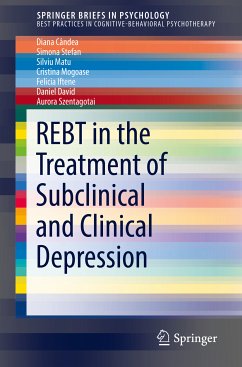
Rethinking the Ethics of Clinical Research (eBook, PDF)
Widening the Lens

PAYBACK Punkte
18 °P sammeln!
Clinical research requires that some people be used and possibly harmed for the benefit of others. What justifies such use of people? This book provides an in-depth philosophical analysis of several crucial issues raised by that question. Much writing on the ethics of research with human subjects assumes that participation in research is a distinctive activity that requires distinctive moral principles. In most contexts, we allow people to choose the activities in which they engage. By contrast, people are permitted to participate in research only after Institutional Review Boards determine th...
Clinical research requires that some people be used and possibly harmed for the benefit of others. What justifies such use of people? This book provides an in-depth philosophical analysis of several crucial issues raised by that question. Much writing on the ethics of research with human subjects assumes that participation in research is a distinctive activity that requires distinctive moral principles. In most contexts, we allow people to choose the activities in which they engage. By contrast, people are permitted to participate in research only after Institutional Review Boards determine that it is appropriate for them to do so. Although we assume that consent to participate in research must be preceded by an elaborate disclosure of information, we make no such assumption in many other areas of life. Although it is thought to be morally problematic to provide financial inducements to prospective subjects, we make no such assumptions when we hire people as loggers, fishermen, and fire fighters. Although we readily accept the "off-shoring" of manufacturing, many regard the off-shoring of medical research with great skepticism. This book seeks to widen the lens through which we consider such issues. When we do so, we will find that many standard principles of research ethics are difficult to defend. The book first argues that because respect for "autonomy" has been a central tenet of research ethics, many have failed to recognize that the structure of the regulation of research is deeply paternalistic and have therefore failed to justify such paternalism. The book then rejects "the autonomous authorization" model that characterizes most writing in bioethics and argues for a "fair transaction" model. Although many worry that the use of financial payment to recruit research subjects is coercive or constitutes an undue inducement, the book argues that most of those worries are misplaced. Shifting its attention to research in developing societies, the book considers the claim that international researchers exploit research abroad often exploits its subjects. Finally, the book considers the claim that because researchers benefit from their use of research subjects, they acquire special obligations to them or their communities.
Dieser Download kann aus rechtlichen Gründen nur mit Rechnungsadresse in A, B, BG, CY, CZ, D, DK, EW, E, FIN, F, GR, HR, H, IRL, I, LT, L, LR, M, NL, PL, P, R, S, SLO, SK ausgeliefert werden.













